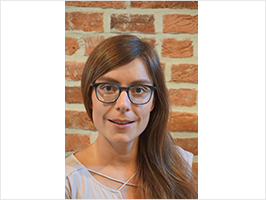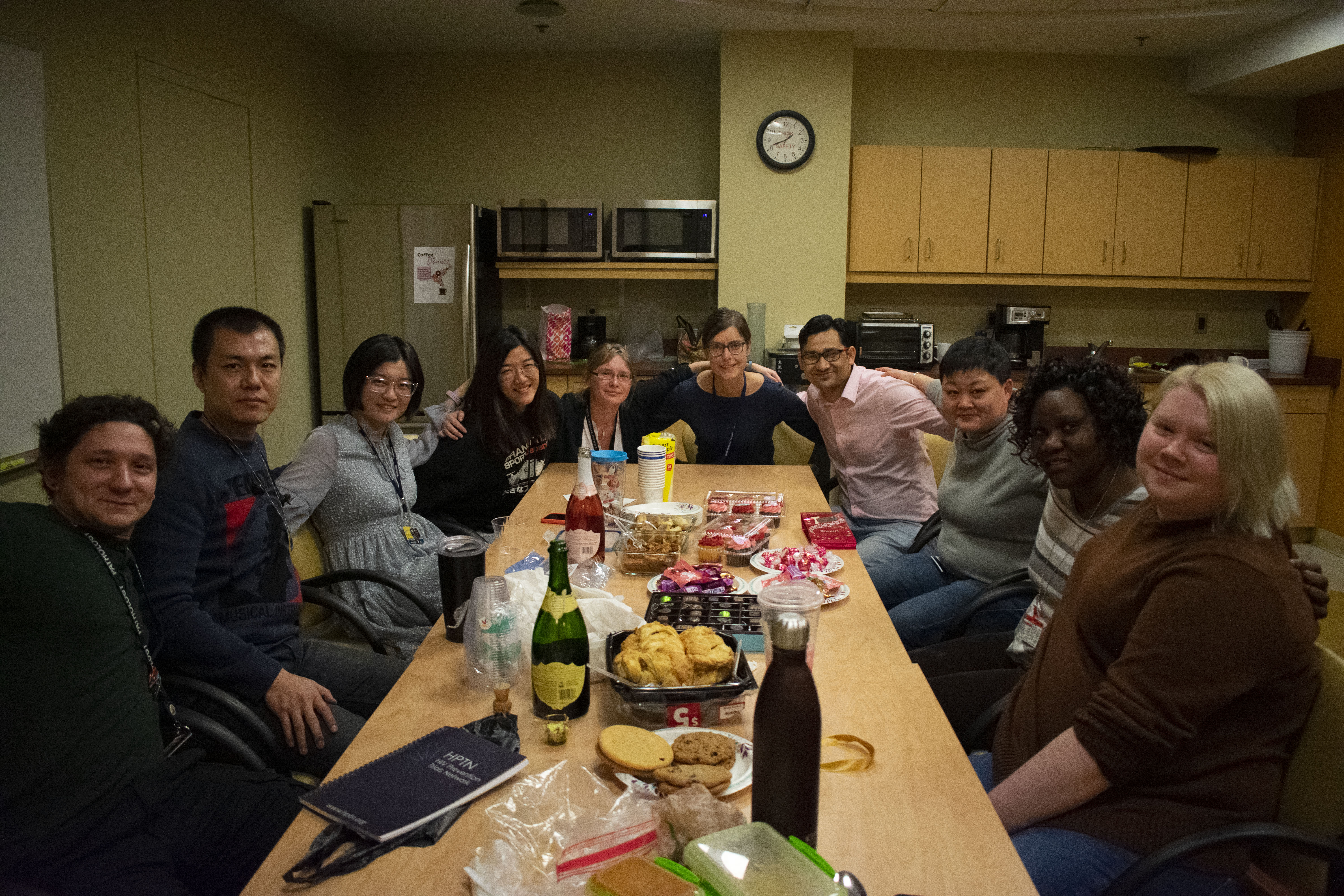„Been in America“: Interviews with German researchers in the USA and Canada
(10/30/20) Through its research fellowship program, the DFG supports laying the foundation for academic careers by funding an independent research project abroad and, since 2019, in Germany too. A large proportion of these fellowships are awarded in the USA and, to a lesser extent, in Canada, thereby reflecting the belief – still prevalent in the life sciences in particular – that for a career in research you have to have “been once in America”.
For several years, the DFG North America has organized meetings of DFG funding recipients at the annual conferences of the German Academic International Network (GAIN) so that they can compare notes, both among themselves and in particular with their funding organization. These meetings provide us with up-to-date impressions of the living and working conditions of early career German researchers in North America – even though this year the annual conference had to take place virtually, at the end of August, due to COVID-19. In a series of interviews, we would like to introduce you to current DFG funding recipients – in this particular case, giving you an impression of who is behind DFG funding number GO 3107.

Dr. Aline Gottlieb
© Aline Gottlieb
DFG: Dr. Gottlieb, many thanks for taking the time to talk to us. In your CV it says: “School-leaving certificate at Bertolt-Brecht-Gymnasium Dresden, grade: 1.6.” You didn’t become a theatre or literary scholar, however, but started off by studying medicine instead. What were your reasons?
Dr. Aline Gottlieb (AG): That’s not an easy question to answer –it certainly wasn’t due to my family background. My family is not academic – out of the five of us, I was the second to take a university degree. I’ve always been ambitious and determined, but I didn’t have many role models that actively encouraged me to explore the world and do something “big.” So my self-confidence and academic ambition were not particularly well developed up to my last years at secondary school. In retrospect, I don’t think this changed until I went abroad. From 2005 to 2006 I was a scholar with the Parliamentary Sponsorship Programme (Congress-Bundestag Youth Exchange) in Kansas – funnily enough, the same place from which Dorothy set off on her journey to the Wizard of Oz. In any case, Kansas was a life-changing experience for me too, though not because I was going from the country to the city; in fact, it was the reverse, but it was no less momentous an experience. During my last two years at school my grades improved significantly, so I had a lot more choices and I was also a lot more confident. When I read the description of the degree course in medicine during my last year of school, everything inside me screamed “yes” – that’s when I knew I wanted to study medicine.
DFG: Now you’re back in a city again, Baltimore – the absolute opposite of a rural idyll, not least due to the television series “The Wire” and the alarming crime statistics. How did you end up there?
AG: Coming from Germany, I had to get used to hearing shots now and again from our doorstep – ten minutes’ walk from one of the best universities in the country. You look over your shoulder here more often than you would in Essen or Dresden, but you don’t really have to live in fear in Baltimore either. We’re here because I found the ideal working environment for my research project in Professor Svetlana Lutsenko’s group at Johns Hopkins University. Under different circumstances it could have been Charleston, South Carolina or the Mayo Clinic in Rochester, Minnesota. But it was Baltimore, which also has its attractions.

Svetlana Lutsenko’s laboratory group
© Aline Gottlieb
DFG: We’ll come back to the attractions of Baltimore later. First of all, let’s talk about your research project, which is described in your funding application as an “Investigation of the effect of copper overload on metabolic stress in liver tissue in vivo and the importance of this on the development of steatosis.” Last year, you won the Science Slam with your lecture at the annual meeting of the German Academic International Network (GAIN). As far as I know, there were no references to copper in this lecture. What is the significance of copper in relation to the liver and do we now know more about non-alcoholic fatty liver diseases (NAFLD)?
AG: There is a link between copper imbalance and steatosis development, i.e. fatty liver. It’s still not clear at all how the two are related, however. If a certain copper transporter (ATP7B) mutates, copper cannot be transported from the liver so it is stored locally, is absent from the serum and other organs and the symptoms of Wilson’s disease develop. Interestingly, almost half of Wilson’s disease patients also have liver steatosis. This is where my real interest in non-alcoholic fatty liver disease comes in: patients with NASH (non-alcoholic steatohepatitis) have also been found to have a copper deficiency in the blood, and according to initial studies, copper does not appear to be excreted. So this raises the question of whether copper is needed for fatty degeneration of the body and if so, for what purpose? I conducted a mouse test comparing ATP7B knockout mice (Wilson disease model) with wild-type mice, giving them either high-caloric or normal mouse food to eat. The results were quite astounding: mice with high levels of copper in their liver undergo less fatty degeneration and by the same token, Wilson's disease improves when the mice are put on a high-caloric diet. We did not expect these results and I’m currently in the phase of trying to gain a better understanding of these differences.
DFG: Let’s talk about your career. You’ve been around quite a bit already. Where do you think your next journey will take you – head of a research group, then a professorship and director of a Max Planck Institute? Where do you see yourself in 15 years from now?
AG: My next journey? If I count up, I’ve actually been to nearly 50 countries, but that’s probably not what you mean. My mentor in Germany, Professor Ali Canbay, believes my track record is enough for me to head up a research group, but I’m not absolutely sure that’s what I want to do in the long term. I’m primarily motivated by the relationship with patients. As such, my interest in investigating fundamentals would probably have more of a translational impact than would be fitting for a group leader in basic research, let alone a Max Planck director. I’m still undecided on this at the moment and I want to finish off my research fellowship here next year first. To quote another famous German: “Let’s wait and see.”
DFG: As a member of the GAIN Advisory Board and President of the John Hopkins Postdoc Association, you’re politically active, too.
AG: As I said before, I’ve always been ambitious and felt the need to get actively involved, wherever I am. I was a student representative before my exchange year, and when I came back from my year abroad I was elected as the student representative again despite having been away for a year. I was rather surprised at that myself. Advocacy can quickly transform into politics, but a political summer seminar at Princeton University quickly made me realize that, although I’m very happy to be engaged in advocacy, politics is not the thing for me.
DFG: During your four years as an assistant physician you’ve taught junior health professionals, taken on various voluntary roles, completed a nursing internship in the USA, done clinical traineeships -- not just in Essen, but also in Rwanda and Wuhan -- and you’ve published, too. Where are your limits?
AG: That's what my friends are always asking me. Even doing shifts as an assistant physician didn't entirely stop me teaching on the side and indulging in my side hobbies, but I did have to take things a little easier at times during that period. Things are surprisingly easy-going for me right now, however – or at least well planned. I do my experiments here five days a week and have not yet had to sacrifice a weekend day. I even get to read – I mean more than just academic literature. Here we have “The Book Thing of Baltimore” – an old warehouse stacked to the roof with donated books that anyone can help themselves to for free. Unfortunately it’s currently closed due to the corona crisis, but I usually get reading material there and have taken some German and English classics home with me.
DFG: If you wanted to do even more effective promotion in the United States for Germany as a research hub, what would you highlight – apart from the efficiency that you very much embody yourself?
AG: I think the big pull factors are the work-life balance provided by the 40-hour week, the fact that weekends are generally free and the much lower cost of living. Here I miss the fact that there aren’t as many vacation days as in Germany, or the idea that you can simply not be at work for a couple of weeks without getting weird looks. Finally: if you’re motivated to do so, you can theoretically fly to a different country every weekend or take a look at regions within Germany that are not far away by train or car.
DFG: Do tell us what you find so enriching at a laboratory like Svetlana Lutsenko’s.
AG: It’s very international here at Johns Hopkins in general, where 75% of postdocs currently come from abroad (in the Svetlana group, too – here there are ten “internationals” working with two Americans). So on the one hand, that’s very enriching. But on the other hand, it’s a challenge and teaches you to be tolerant. At the moment, everything has been greatly slowed down due to COVID-19 of course, so patience is a virtue. The DFG will compensate for the material damage caused by the coronavirus, which is by no means to be taken for granted and which I am very grateful for.
DFG: Thank you very much. To change the subject: there are now numerous websites such as bioRxiv and medRxiv where ideas are presented and discussed without having to go through an obligatory peer review beforehand. Do you follow these?
AG: Yes, of course – you have to if you want to stay up to date. But professionals don’t necessarily get excited about these things right away, of course – unlike non-experts, as has been the case recently in connection with COVID-19. Yes, PrePub is a necessity, but I hope to stay productive without having to be on social media.
DFG: What else will be important for you in the future besides science?
AG: I’d certainly like to have a family of my own and, when the time is right, pursue outdoor activities as well as travel more when it’s possible again.
DFG: One last question: is there something that you’re particularly proud of at the moment, and by contrast, is there something that perhaps didn’t go so well but was nevertheless instructive?
AG: Yes, that I’ve been able to become a doctor, and that I’ve not only travelled a lot but also learned something from the experience. For me personally, the political summer seminar I mentioned earlier was instructive but not so good.
DFG: Thank you very much for the interview and we wish you all the best with your plans. But then again, thinking of Bertolt Brecht: he was rather skeptical about plans – at least in his “Ballad of the Inadequacy of Human Planning” – so to be on the safe side, we also hope that the surprises you encounter along the way will be positive ones.